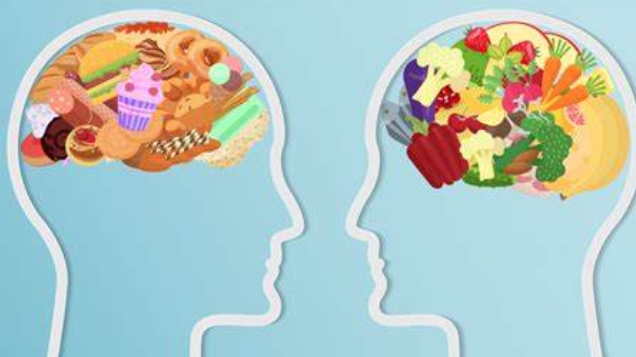Water is essential for life, and staying hydrated is crucial for maintaining optimal health and well-being. While the importance of drinking water may seem obvious, many people underestimate the significant role hydration plays in the body. Dehydration, even at mild levels, can have a profound impact on physical and mental health. From supporting organ function to boosting energy levels, proper hydration is the key to feeling your best and staying healthy.
How Water Affects the Body
Water makes up about 60% of the human body, and its presence in cells, tissues, and organs is vital for many physiological processes. Every system in the body relies on water to function properly, including the cardiovascular, digestive, and nervous systems. Water helps maintain blood circulation, regulate body temperature, and remove waste through urination, sweat, and bowel movements.
The body’s cells need water for cellular processes like nutrient absorption, metabolism, and energy production. It also plays a critical role in maintaining electrolyte balance, which helps with nerve function, muscle contraction, and fluid regulation. Without sufficient water, the body’s cells and organs would struggle to perform these essential functions, leading to a range of health issues.
The Role of Hydration in Physical Performance
Proper hydration is particularly important for physical performance. Whether you’re engaging in intense exercise, performing physical labor, or simply going about your day, your body loses water through sweat, urine, and even breathing. If you don’t replenish those lost fluids, you risk becoming dehydrated, which can hinder your physical performance.
Dehydration can lead to symptoms like fatigue, dizziness, muscle cramps, and headaches. It can also impair your ability to concentrate, increase the perception of effort during exercise, and delay recovery times. In more severe cases, dehydration can lead to heat exhaustion or heatstroke, both of which are serious medical conditions.
Drinking enough water before, during, and after exercise is essential for maintaining peak performance and avoiding dehydration-related complications. Sports drinks with added electrolytes can also help replenish lost salts and minerals, but water should always be the primary source of hydration.
Hydration and Cognitive Function
Hydration doesn’t just affect the body—it also has a significant impact on cognitive function and mental clarity. Even mild dehydration can impair memory, concentration, and mood. Studies have shown that dehydration can affect brain performance, leading to difficulties in attention, focus, and decision-making.
Water plays a crucial role in maintaining the brain’s ability to function optimally. The brain is composed of about 75% water, and staying hydrated helps support neurotransmitter function and the transmission of electrical signals between brain cells. Dehydration can also increase feelings of anxiety, irritability, and stress, making it harder to stay calm and focused throughout the day.
To support cognitive performance, it’s important to drink enough water throughout the day and particularly during times of high mental exertion. For individuals experiencing cognitive challenges, such as studying for exams or working long hours, proper hydration can help enhance memory and concentration.
The Impact of Hydration on Skin Health
Proper hydration also plays a key role in maintaining healthy skin. The skin is the largest organ in the body and relies on water to maintain its elasticity, moisture, and overall appearance. Dehydrated skin can appear dull, dry, and more prone to wrinkles and fine lines.
When you are well-hydrated, your skin retains moisture, helping it stay soft, supple, and glowing. Water helps flush out toxins from the body, reducing the likelihood of skin issues like acne or other inflammatory conditions. Additionally, hydration supports collagen production, which helps keep the skin firm and youthful.
Drinking water isn’t the only way to support skin hydration. Using moisturizing products that help lock in moisture, protecting your skin from environmental factors like cold weather or sun exposure, is also essential for maintaining healthy skin.
The Link Between Hydration and Digestion
Water is crucial for maintaining a healthy digestive system. It aids in the breakdown of food, the absorption of nutrients, and the movement of food through the intestines. When you’re not properly hydrated, the digestive process slows down, which can lead to issues like constipation, bloating, and indigestion.
Water helps soften stool, making it easier to pass, and supports the production of saliva and digestive enzymes, which are necessary for breaking down food in the stomach. Inadequate hydration can also lead to a buildup of toxins in the body, as water plays a role in removing waste through the kidneys and urine. By staying hydrated, you support your body’s natural detoxification process and improve overall digestive health.
How Much Water Do You Need?
The amount of water each person needs depends on several factors, including age, activity level, climate, and overall health. The general recommendation is to drink at least eight 8-ounce glasses of water per day, often referred to as the “8×8 rule.” This equals about 2 liters or half a gallon of water. However, some people may need more water, especially if they are physically active, live in hot climates, or are pregnant or breastfeeding.
A good way to gauge your hydration status is to pay attention to your body’s thirst cues and the color of your urine. If your urine is pale yellow, you’re likely well-hydrated. Dark yellow or amber-colored urine may indicate dehydration. Additionally, if you feel thirsty, it’s a sign that your body needs more water.
Tips for Staying Hydrated
- Carry a water bottle: Having a water bottle with you throughout the day makes it easier to sip water consistently.
- Eat hydrating foods: Many fruits and vegetables have high water content, such as watermelon, cucumbers, oranges, and strawberries.
- Set reminders: If you have trouble remembering to drink water, set reminders on your phone or use an app to track your water intake.
- Drink before you’re thirsty: By the time you feel thirsty, your body may already be slightly dehydrated. Make sure to drink regularly throughout the day.
- Drink herbal teas: Herbal teas like peppermint, chamomile, or ginger tea can be hydrating while providing additional health benefits.
Conclusion
Hydration is an essential aspect of overall health, influencing everything from physical performance to cognitive function and skin health. Drinking enough water supports vital bodily functions, improves digestion, and helps prevent dehydration-related issues. While the amount of water needed may vary from person to person, making hydration a priority can help you feel more energized, focused, and balanced. By staying mindful of your water intake, you can support your body’s ability to function at its best and enjoy improved health and well-being.





